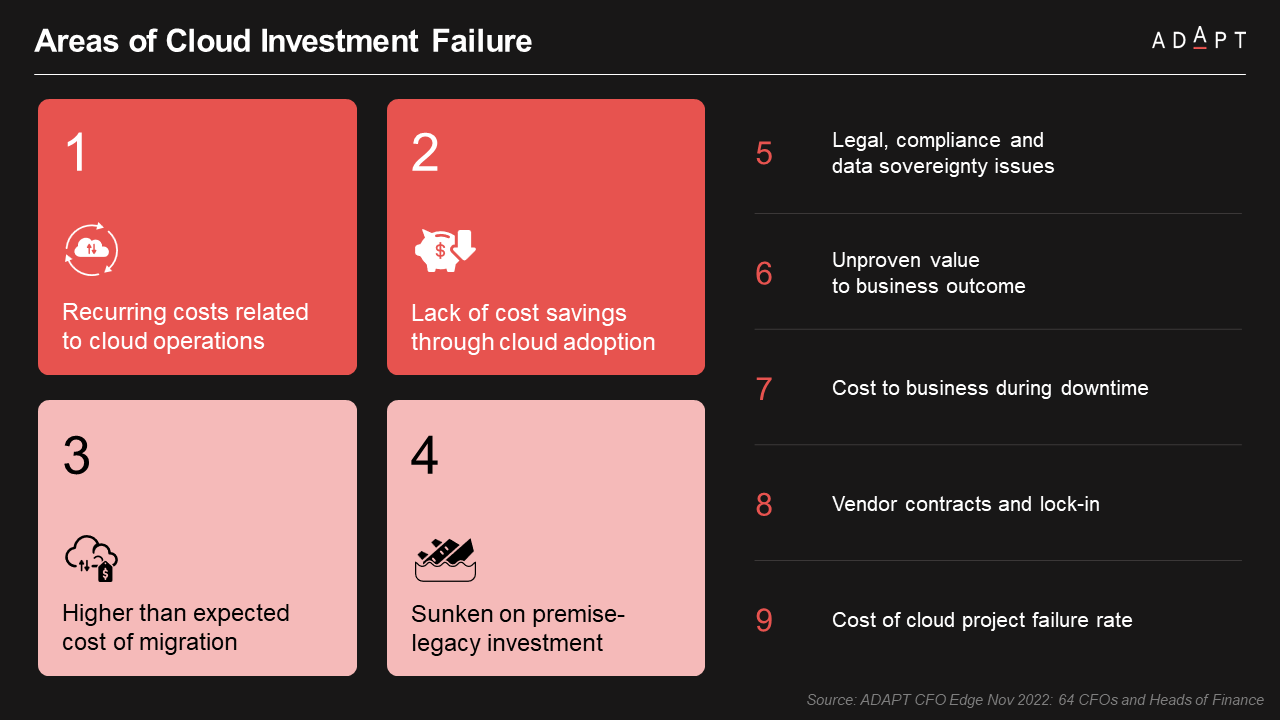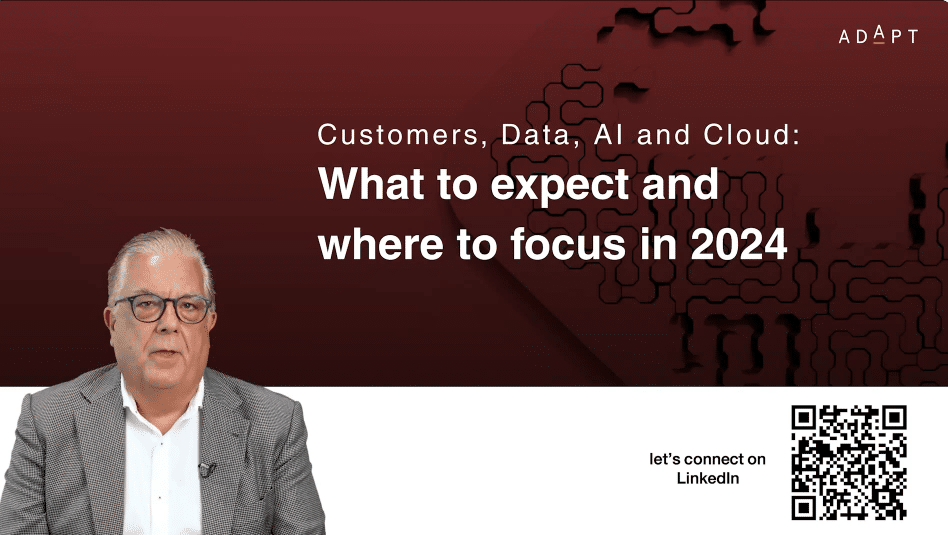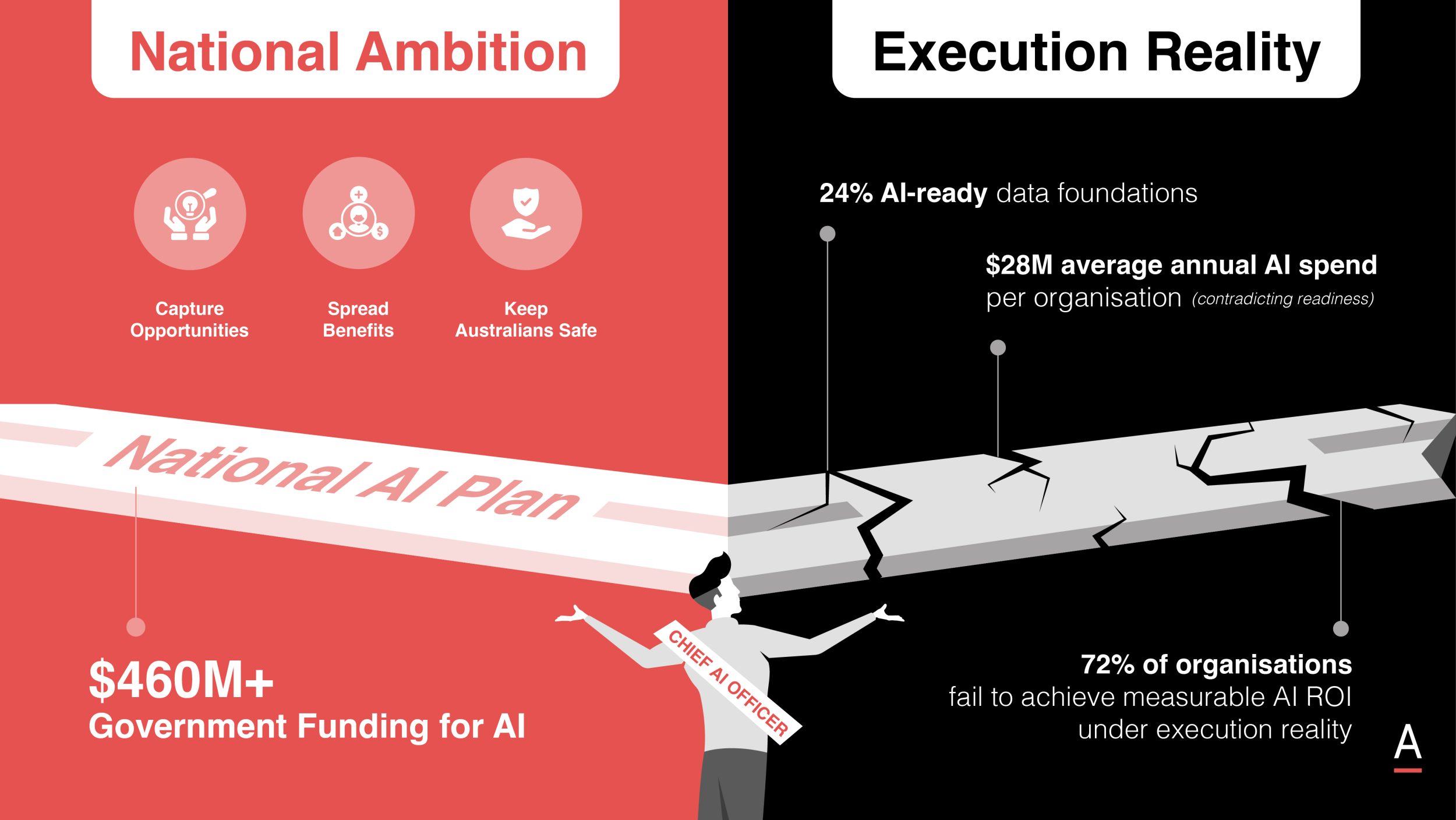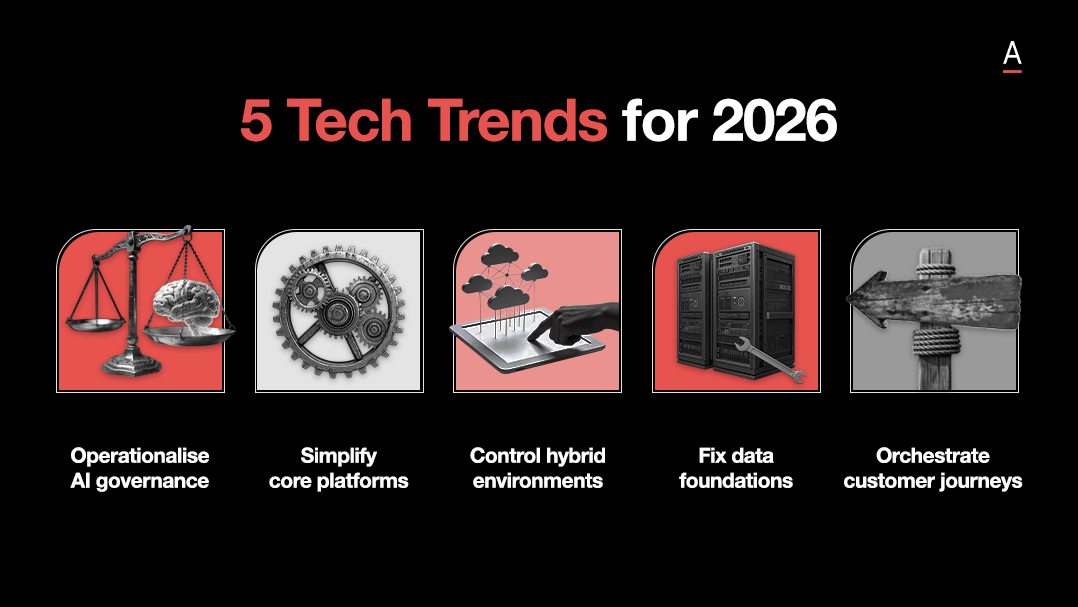In 2024, organisations are at a pivotal point where leveraging data-driven strategies is not just beneficial but crucial for staying competitive.
Explore the key challenges, opportunities, and practical strategies that will shape your organisational journey in this transformative era.
1. Prioritise operational efficiency and cultivate data culture
Australian executives are increasingly focusing on operational efficiency and developing data-driven cultures, as revealed by ADAPT’s Edge Surveys 2022 of 420 Australian tech executives.

This trend is evident in the strategic investments across various executive roles, from Chief Digital Officers enhancing data quality and AI-driven insights, to Chief Financial Officers increasing dashboard use for transformation, and Chief Human Resource Officers identifying cyber security as a vital skill.

Still, challenges like inconsistent data culture and fragmented data systems remain, as ADAPT CIO Edge Surveys in 2022 and 2023 have pointed out.

Moreover, a February 2024 survey of 160 Australian CIOs revealed diverse readiness for AI and analytics, with substantial opportunities to improve data governance and automated decision-making.

Key Takeaway: Actively prioritise and enhance operational efficiency while embedding a data-driven culture throughout your organisation.
2. Overcome cultural hurdles and align executive vision
Understanding the critical role of data-driven initiatives, organisations need to navigate through challenges like cultural resistance, variations in data culture, and a lack of alignment at the executive level.
To tackle these issues, it’s essential to join forces and create a shared vision across the leadership team.
Findings from CIO Edge 2023 reveal that 43% of CIOs see the necessity for digital expertise in their board and leadership, whereas 48% view their employees as digitally proficient.

This situation points to a considerable gap in digital awareness within organisations, emphasising the importance of closing this gap to accelerate the shift towards data-driven operations.
Key Takeaway: Work diligently to overcome cultural resistance by fostering alignment and instilling a shared data-centric vision among all levels of leadership.
3. Leverage AI for actionable insights and process automation
Organisations are increasingly seeing the value that AI can bring, especially as they work to get AI-ready.
AI-driven insights and automated processes are key to improving decision-making and making operations more efficient.
Industry surveys back this up.
For example, the CIO Edge 2022 survey, carried out in February 2023 with 250 CIOs and technology leaders, showed a keen interest in investing in AI for customer insights and automation.
This points out AI’s importance in boosting efficiency and sparking innovation.
The ADAPT CIO Edge Survey in February 2024, which involved 160 Australian CIOs, found that on average, 47% of the areas in Australian organisations are effectively digitised.

However, these CIOs also pointed out significant hurdles to realising AI’s full potential.
Technical issues like insufficient data skills, limited funding or resources, and poor data quality, as well as cultural challenges such as a varied data culture, distrust or fear of AI, and a lack of understanding about AI, are major concerns.
Key Takeaway: Harness artificial intelligence to gain actionable insights and automate processes, thus boosting decision-making and operational efficiency.
4. Drive productivity and growth through innovation initiatives
Innovation is crucial for boosting productivity and generating returns, even though Australia is ranked 24th in the WIPO Global Innovation Index 2023.

This ranking signals an urgent need to step up innovation efforts.
Insights from the ADAPT CIO Edge Events in February and August 2023 show that technology leaders, including 214 CIOs and Heads of Technology, are putting innovation at the forefront to enhance returns.
These events reveal that 6% of the total IT budget is dedicated to innovation initiatives.

Additionally, the August 2023 CIO Edge event, which featured 142 CIOs and technology heads, found that 57% of Australian organisations plan to concentrate on innovation in the next 12 to 24 months to boost returns.

These actions reflect a strong commitment to driving growth and success by emphasising innovation and encouraging a culture of experimentation.
Key Takeaway: Drive productivity and stimulate growth by championing innovation initiatives and nurturing a culture of experimentation and creativity.
5. Reassess cloud investments to maximise value
Organisations need to revisit their cloud investments to ensure they’re getting the best value, as highlighted by the ADAPT CIO Edge Events in February and August 2023, involving 266 CIOs and technology leaders.
Cloud adoption can modernise operations, but it also brings challenges like ongoing operational costs, limited cost savings, unexpected migration costs, and the continued expenses of existing on-premise systems.
These challenges were pointed out in the ADAPT CFO Edge report in November 2022, which included feedback from 64 CFOs and finance leaders.

Future trends suggest a change in how workloads are managed, with an expected rise in public cloud use from 38% in 2023 to 55% in 2024 and remaining steady at 54% in 2025.

By concentrating on the broader benefits, organisations can make the most of cloud technology and secure lasting success.
Key Takeaway: Regularly reassess and strategically optimise cloud investments to ensure they deliver maximum value and align with long-term organisational goals.
Achieving data-driven success in 2024
The year 2024 offers a dynamic setting where embracing data-driven strategies becomes essential for organisational success.
Organisations can flourish by focusing on operational efficiency, tackling cultural barriers, harnessing AI, championing innovation, reassessing cloud investments, building strategic partnerships, and improving interaction.
These steps are crucial for navigating the transformation journey and realising the full potential in this data-driven age.
Quick recap of executive actions:
- Make operational efficiency a priority and build a decision-making culture powered by data.
- Address cultural obstacles and ensure leadership is aligned to facilitate a data-driven transformation.
- Utilise AI for generating valuable insights and automating processes, enhancing both efficiency and innovation.
- Stimulate productivity and growth by emphasising innovation and cultivating an environment where experimentation is encouraged.
- Critically assess cloud investments to ensure they are yielding the most value.
With these strategies and a proactive approach, organisations are well-equipped to journey towards data-driven success in 2024, opening doors to new opportunities and fostering transformative change.


























